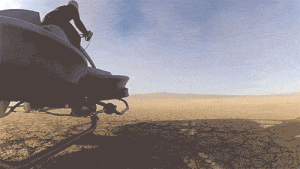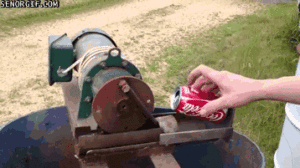On the 30th of last June, something amazing happened in the sky.
On the 14th of July, Pluto sent us a heart by way of New Horizons, the spacecraft that officially completes humanity’s trip through the solar system.
We live in a time when India sent a satellite to Mars at Rs. 7 per kilometer (when was the last time you traveled anywhere for that little?) when we know to near-certainty that Mars once had life when we the see the gorgeous geysers of Ganymede when we have discovered that there are 11 billion planets that could potentially support life outside of Earth. Careers in Space, even though you’ll never live on another planet in your lifetime, are very exciting right now, especially in the UK, which has colleges that have among the best science and technology faculties in the world. This brings us…
To Infinity & Beyond: Careers In Space Exploration & How To Get There
Astronauts
What You’ll Do:
You’ll do what conspiracy theorists think the Americans did not do back in 1969. You’ll join the ranks of Yuri Gagarin, Neil Armstrong and Chris Hadfield (the coolest man on Earth!). Of course, you can also fuel your own conspiracy theories from the ground up.
What Courses:
- Engineering
- Biological science
- Physical science
- Mathematics
What Unis:
- Cambridge
- Oxford
- Imperial College London
Aerospace Engineers
What You’ll Do:
Aerospace Engineers come in many shapes and sizes. Any space programme requires people specializing in a who lot of areas from computers to mechanics to robotics to design and even spacesuits. As long as you have a tech degree, you can probably find …space. Gotcha.
What Courses:
- Aerospace Engineering
- Mechanical Engineering
- Robotics Engineering
- Electrical & Communications Engineering
- Computer & Software Engineering
- And so on
- And so forth…
What Unis:
- Cambridge
- Imperial College London
- Bristol
Astrobiologists
What You’ll Do:
Astrobiology seems to be the microcosm of all scientific endeavour. Sure, science gave us drone selfies and the iWatch, but all that happened because humanity wanted answers to one question: Is anybody out there? This is the question you’ll be working on answering.
What Courses:
- Geology
- Planetary sciences
- Biology
- Astronomy
What Unis:
- York
- Durham
- St Andrews
Astrophysicists
What You’ll Do:
A lot of R&D goes into the efforts towards going to space. However, just as much goes into breaking down what we find once we send people or things out there. To the astrobiologist’s “Is anybody out there?”, the astrophysicist is posed – “How do we find them?”.
What Courses:
- Astrophysics
- Astronomy
- Physics
What Unis:
- Cambridge
- Oxford
- Imperial College London
Technologists and Technicians
What You’ll Do:
As you may have imagined, whether it is state-sponsored space programmes or private ones (of which there are increasing numbers), technical work is what holds the whole thing up – quite literally. The aerospace engineer designs the spacecraft, but you, the technician, is going to build it. The communications engineer builds communication systems, but you will be the one putting it into place.
What Courses:
Associates Degrees or Polytechnic Degrees or even Bachelor’s Degrees
- in Engineering
What Unis:
- Queen’s University Belfast
- The University of Exeter
- The Open University UK
Virtual Internship Program
With the outbreak of COVID-19 and lockdown across the country, we hope you’re home and safe! Spare two hours from your routine and take this fun online internship! Virtual Internship Program is an interesting and online immersive program that allows you to experience 18 different professions, solve their tasks and understand their world. Science, Architecture, Fashion, Law, Accounts and more – there are 18 career options for you to explore.
The pandemic might have changed a lot of your plans, but that leaves you with extra time to prepare for them. Spend your time wisely to make sure you have a bright future








